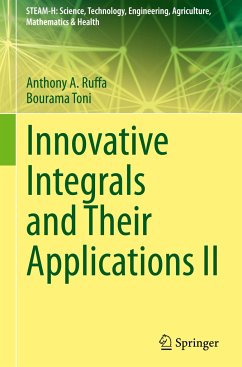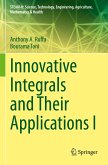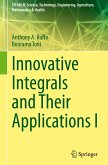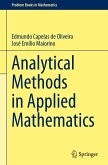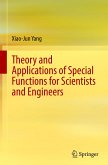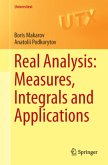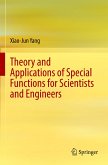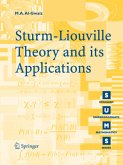In its second installment, Innovative Integrals and Their Applications II explores multidimensional integral identities, unveiling powerful techniques for attacking otherwise intractable integrals, thus demanding ingenuity and novel approaches. This volume focuses on novel approaches for evaluating definite integrals, with the aid of tools such as Mathematica as a means of obtaining useful results. Building upon the previous methodologies, this volume introduces additional concepts such as interchanging the order of integration, permutation symmetry, and the use of pairs of Laplace transforms and Fourier transforms, offering readers a comprehensive array of integral identities. The content further elucidates the techniques of permutation symmetry and extends the multivariate substitution approach to integrals with finite limits of integration. These insights culminate in a collection of integral identities involving gamma functions, incomplete beta functions, Bessel functions, polylogarithms, and the Meijer G-function. Additionally, readers will encounter applications of error functions, inverse error functions, hypergeometric functions, the Lambert W-function, elliptic integrals, Jacobi elliptic functions, and the Riemann zeta function, among many others, with a focus on their relevance in various scientific disciplines and cutting-edge technologies. Each chapter in this volume concludes with many interesting exercises for the reader to practice.
A key tenet is that such approaches work best when applied to integrals having certain characteristics as a starting point. Most integrals, if used as a starting point, lead to no result at all, or lead to a known result. However, there is a special class of integrals (i.e., innovative integrals), which, if used as a starting point for such approaches, lead to new and useful results, and can also enable the reader to generate other new results that do not appear in the book.
The intended readership includes science, technology, engineering, and mathematics (STEM) undergraduates and graduates, as well as STEM researchers and the community of engineers, scientists, and physicists; most of these potential readers have experienced the importance and/or the applications of integration from finding areas, volumes, lengths, and velocities to more advanced applications. The pedagogical approach of the exposition empowers students to comprehend and efficiently wield multidimensional integrals from their foundations, fostering a deeper understanding of advanced mathematical concepts.
A key tenet is that such approaches work best when applied to integrals having certain characteristics as a starting point. Most integrals, if used as a starting point, lead to no result at all, or lead to a known result. However, there is a special class of integrals (i.e., innovative integrals), which, if used as a starting point for such approaches, lead to new and useful results, and can also enable the reader to generate other new results that do not appear in the book.
The intended readership includes science, technology, engineering, and mathematics (STEM) undergraduates and graduates, as well as STEM researchers and the community of engineers, scientists, and physicists; most of these potential readers have experienced the importance and/or the applications of integration from finding areas, volumes, lengths, and velocities to more advanced applications. The pedagogical approach of the exposition empowers students to comprehend and efficiently wield multidimensional integrals from their foundations, fostering a deeper understanding of advanced mathematical concepts.

